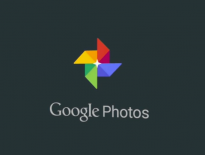WE’RE ANOTHER STEP closer to a world where everyone pays for a pastry at the corner coffee shop with the same device we use to pay for a video online.

On Thursday at its annual developer conference in San Francisco, Google unveiled a new digital wallet it calls “Android Pay”. Like Apple Pay—the service that arrived on the latest Apple iPhones this past fall—Google’s new smartphone tool provides a way to instantly pay for stuff not only in real world stores, but inside mobile apps on Android-based phones themselves.
The company has long offered a similar service called “Google Wallet”. But its reach was limited, and it was overshadowed for good by the launch of Apple Pay, which was embraced by a wide range of big-name merchants, including McDonald’s, Walgreens, Macy’s, and Whole Foods. Android Pay—basically an enhanced version of Google Wallet—is a way of playing catch-up. “They have to maintain parity with Apple,” says Michael Facemire, an analyst with research outfit Forrester who tracks the evolution of Google’s Android operating system and other mobile phone technology.
The service—which will be available on future Android phones as well as from the Google Play app store—operates much like Apple Pay. It stores your credit card details on your phone, and both in shops and online, you can pay for goods and services by touching the phone’s built-in fingerprint reader. In stores, this also involves holding the phone to a terminal equipped with near field communication, or NFC, technology.
As with Apple Pay, a wide range of big-name merchants are signed on to accept payments through Android Pay, from McDonald’s and BestBuy to the Etsy online marketplace and ride-hailing app Lyft. According to Google VP of engineering Dave Burke, more than 700,000 physical stores and 1,000 mobile apps will handle the service.
You can already use Apple Pay with many of these same merchants. And similar mobile wallets are available from the likes of PayPal and others. But with Google’s Android operating system running so many of the world’s phones—Android’s market share hovers around 80 percent, according to research firm IDC—Google’s new tool could help push rapid mobile payments into the mainstream.
The broad adoption of smartphones as the main way we pay is still years away. But the pace of change is accelerating. It’s becoming easier to pay for stuff in stores with a phone, but perhaps more importantly, the emergence of mobile payment systems is also dovetailing with the surge in the use of phones as the place we buy things, from groceries to movies to rides. In and of itself, using your smartphone to pay for some toothpaste at Walgreens is only so attractive. After all, paying with an actual credit card isn’t that difficult. And it doesn’t ever lose battery power. But if the phone becomes the easiest way to pay for things online, you might be more inclined to make it the way you pay for stuff offline, too.





